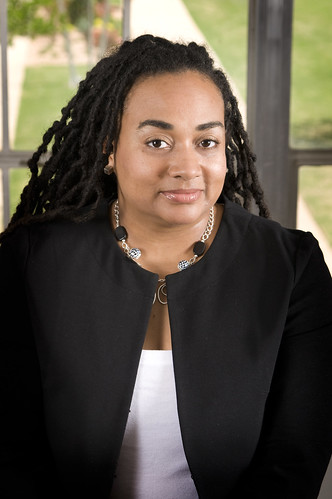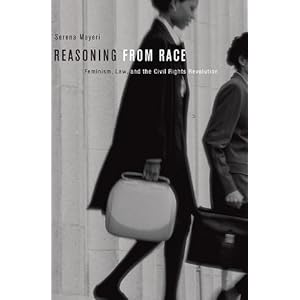 Metro Weekly has the story, but this is outrageous. Paul Clement, partner at King & Spalding, signed the firm up to represent the House of Representatives in defending DOMA, the agreement between the firm and the government contains a provision that prohibits all King & Spalding attorneys and non-attorney employees from any advocacy to “alter or amend” DOMA. Here’s the exact language:
Metro Weekly has the story, but this is outrageous. Paul Clement, partner at King & Spalding, signed the firm up to represent the House of Representatives in defending DOMA, the agreement between the firm and the government contains a provision that prohibits all King & Spalding attorneys and non-attorney employees from any advocacy to “alter or amend” DOMA. Here’s the exact language:
“partners and employees who do not perform services pursuant to this Agreement will not engage in lobbying or advocacy for or against any legislation … that would alter or amend in any way the Defense of Marriage Act and is pending before either the U.S. House of Representatives or the U.S. Senate or any committee of either body during the term of the Agreement.”
This contract provision if surely offensive, but it’s illegal in several states where the firm has offices. New York law, for instance, states
Unless otherwise provided by law, it shall be unlawful for any employer or employment agency to refuse to hire, employ or license, or to discharge from employment or otherwise discriminate against an individual in compensation, promotion or terms, conditions or privileges of employment because of:
an individual’s political activities outside of working hours, off of the employer’s premises and without use of the employer’s equipment or other property, if such activities are legal …
McKinney’s Labor Law § 201-d (2)(a)
Similarly, the California labor code states that: “[n]o employer shall make, adopt, or enforce any rule, regulation, or policy … [f]orbidding or preventing employees from engaging or participating in politics ….”
Of course King & Spalding can take on the representation of a public client on a matter of public concern, but this kind of firm-wide gag rule is quite another. It’s illegal and it’s wrong.
FYI – King & Spalding’s website has a lovely page describing their robust commitment to diversity. The gag rule probably violates firm policy as well:
At King & Spalding, we recognize that diversity is more than just a buzz word, it is an integral part of our culture. We believe that the diversity of our firm significantly enhances our ability to provide the highest quality legal services to our clients. We strive to create a collaborative environment that benefits from the sharing of experiences, ideas and unique qualities that each of our lawyers brings to the firm.
Of course, we recognize that diversity and inclusion are about more than numbers. Because diversity is one of the firm’s core values, it is supported by a standing committee that leads the firm’s diversity and inclusion efforts.
. . .
The Diversity Committee includes partners, counsel and associates from across the firm and the members represent differences in ethnicity, race, gender, lifestyles (?? is this a closet word for sexual orientation?), backgrounds and viewpoints.
. . .
Each partner in the firm has committed to spend a minimum of 15 hours working on diversity and inclusion efforts. In 2009, our partners devoted more than 2800 hours to diversity efforts. This is in addition to the time spent on associate professional development activities.
(emphasis mine)
Finally, on the firm’s “LGBT Diversity” page they describe how they “encourage and support their partners, counsel, and associates taking leadership roles in organizations serving the LGBT community:
Partner Sam Griffin has served as co-chair of Georgia’s Multi-Bar Leadership Council, and is a member of the board of directors for the Stonewall Bar Association of Georgia, the statewide group for LGBT legal professionals.
Associate Brian Basinger is President of the Stonewall Bar Association of Georgia. Mr. Basinger also has served on the board of directors for Georgia Equality, the statewide non-partisan LGBT advocacy organization.
The firm’s LGBT Affinity Group provides opportunities for partners, attorneys, and counsel throughout the firm to interact and collaborate on diversity efforts.
Are all these nice people going to have to resign from their community work in light of the contract Clement negotiated to defend DOMA?
Cross-posted from Gender & Sexuality Law Blog
Follow the Center for Gender & Sexuality Law on Facebook and on Twitter



 Earlier this year, Helena Alviar García became the first female dean of the Law School at the University of the Andes in Bogotá (Colombia). The school’s press release is
Earlier this year, Helena Alviar García became the first female dean of the Law School at the University of the Andes in Bogotá (Colombia). The school’s press release is  Al Brophy
Al Brophy




 Congratulations to Danne Johnson whose tenure at Oklahoma City University School of Law whose was confirmed yesterday by the trustees.
Congratulations to Danne Johnson whose tenure at Oklahoma City University School of Law whose was confirmed yesterday by the trustees.


 Metro Weekly
Metro Weekly
 Even Time magazine is hip to the orange on the seder plate:
Even Time magazine is hip to the orange on the seder plate:


 Anyone interested in feminist jurisprudence or rights discourse will want to read this new book by Serena Mayeri (Penn): Reasoning from Race Feminism, Law, and the Civil Rights Revolution. The publisher’s description is
Anyone interested in feminist jurisprudence or rights discourse will want to read this new book by Serena Mayeri (Penn): Reasoning from Race Feminism, Law, and the Civil Rights Revolution. The publisher’s description is 
 Over at
Over at